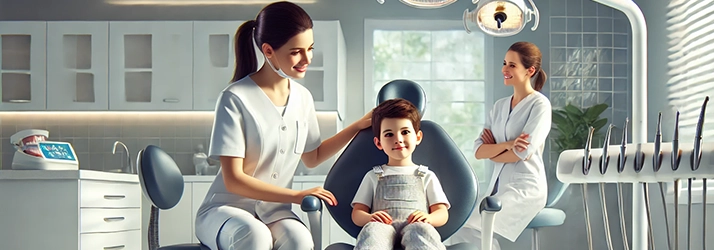Oral Sedation Post-Op Instructions in Campbell CA

Ensuring your child’s safety and comfort after oral sedation post-op in Campbell CA is our top priority. Following these post-operative instructions will help them recover smoothly while minimizing any risks. If you have any concerns or notice anything unusual, please reach out to Campbell Pediatric Dentistry immediately.
What to Expect After Oral Sedation in Campbell CA
Your child will likely remain drowsy following their dental procedure and should be under adult supervision until the effects of sedation fully wear off. The sedation effects may last for several hours, and during this time, you should take extra precautions to ensure their safety.
Traveling Home Safely
- Ensure your child is properly positioned in their car seat with their head and airway fully supported during the ride home.
- If your child falls asleep, place them on their side with their head supported and chin up to maintain a clear airway.
- Periodically check your child’s breathing. If they begin snoring, gently adjust their head until the snoring stops.
Activity Restrictions
- Your child may remain groggy, irritable, or have slower reflexes for the rest of the day.
- Restrict any physical activity that requires balance or coordination, such as running, biking, or playing sports.
- Avoid activities that could lead to falls or injuries while they are still feeling the effects of sedation.
Hydration and Nutrition
- Encourage frequent fluid intake to prevent dehydration, even if you need to wake your child up to drink.
- Start with small sips of clear liquids such as water, diluted juice, or Pedialyte.
- Avoid heavy, greasy, or difficult-to-chew foods until they are fully alert.
- If your child is nauseous, allow them to rest and try offering fluids again after a short break.
Managing Numbness and Discomfort
- A local anesthetic may have been used to numb the mouth during treatment. This numbness typically lasts 2 to 4 hours.
- Prevent accidental injury by watching to ensure your child does not bite, scratch, or suck on their lips, cheeks, or tongue while numb.
- If your child experiences mild discomfort, Children’s Tylenol (acetaminophen) or Motrin (ibuprofen) may be given as directed.
- A low-grade fever (below 101°F) can be common after sedation. Use over-the-counter fever reducers if needed.
Signs to Watch For
Most children recover without issues, but contact Campbell Pediatric Dentistry in Campbell CA immediately if you notice any of the following:
- Persistent vomiting or inability to keep fluids down
- Difficulty breathing or persistent snoring that does not improve with repositioning
- Unresponsiveness or extreme lethargy beyond what is expected
- Severe pain, swelling, or unusual bleeding in the mouth
If your child experiences trouble breathing or a medical emergency, call 911 immediately.
Follow-Up Care
Your child should be back to normal by the following day. However, if you have any concerns, don't hesitate to reach out to our team at Campbell Pediatric Dentistry in Campbell CA for further guidance.
By following these instructions, you can help ensure a smooth recovery for your child after oral sedation. Thank you for trusting Campbell Pediatric Dentistry with your child’s dental care.
Campbell Pediatric Dentistry
476 E Campbell Ave Suite A
Campbell, CA 95008
Monday
Closed
Tuesday
8:30am - 5:00pm
Wednesday
Closed
Thursday
8:30am - 5:00pm
Friday
8:30am - 5:00pm
Saturday & Sunday
Closed
Los Gatos Kids Dentistry
15595 Los Gatos Blvd Suite C
Los Gatos, CA 95032
Monday
8:30am - 5:40pm
Tuesday
8:30am - 5:40pm
Wednesday
8:30am - 5:40pm
Thursday
8:30am - 5:40pm
Friday
8:30am - 5:40pm
Saturday & Sunday
Closed
